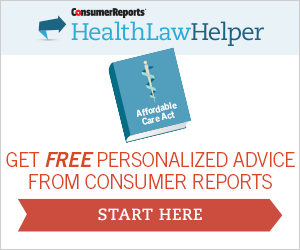Young adults today are prone to a number of health risks like sports injury, road accidents, work pressure, etc. As a result, a lot of families have young members suffering from serious health issues and are burdened under the health care debt. But when it comes to taking a health insurance policy, Americans still seem to be held back by the “it will not happen to me” syndrome.
The Affordable Care Act (ACA) or Obamacare, as it is more commonly called, intends to increase the quality of health insurance and make it more affordable. As per the Act, all Americans (of course, with certain exceptions) are required to buy a health insurance policy in order to avoid facing a tax penalty. But despite the deadline approaching, only about 4 million Americans have signed up till now. Don’t you think you should hurry up?
Three Reasons You Should Sign Up for Obamacare Before March 31:
(Tres Razones por las que debe inscribirse para Obamacare Antes de 31 de Marzo)
1. Enrolling in Obamacare policy will lower the cost of your health insurance as well as the worries of your family.
2. If you don’t sign up by March 31, 2014, you will be liable to pay a tax penalty, which of course, will cost you more than buying a policy.
3. After the March 31 deadline, you will not be able to enroll for the policy for this year unless a qualifying event (e.g. change in marital status, moving to another state, having a baby, etc.) occurs.
 Want to know more on how the Obamacare Law will affect you? HealthLawHelper can help you with free personalized advice. HealthLawHelper is an informational tool designed for individual consumers. It incorporates the best information Consumer Reports has about the federal healthcare law’s impact on consumers. Though enrollment has picked up, millions of Americans are still not aware of their options under the new law. The HealthLawHelper bridges this knowledge gap and helps connect consumers with their new options or puts their mind to ease about how the law actually may or may not affect them.
Want to know more on how the Obamacare Law will affect you? HealthLawHelper can help you with free personalized advice. HealthLawHelper is an informational tool designed for individual consumers. It incorporates the best information Consumer Reports has about the federal healthcare law’s impact on consumers. Though enrollment has picked up, millions of Americans are still not aware of their options under the new law. The HealthLawHelper bridges this knowledge gap and helps connect consumers with their new options or puts their mind to ease about how the law actually may or may not affect them.
The tool works for any scenario and it gives you options. In many cases, the tool will direct the user to their state marketplace for new coverage options. But for example, if you already have Medicare coverage or coverage through an employer, the tool helps you understand how your current situation fits in to law.




